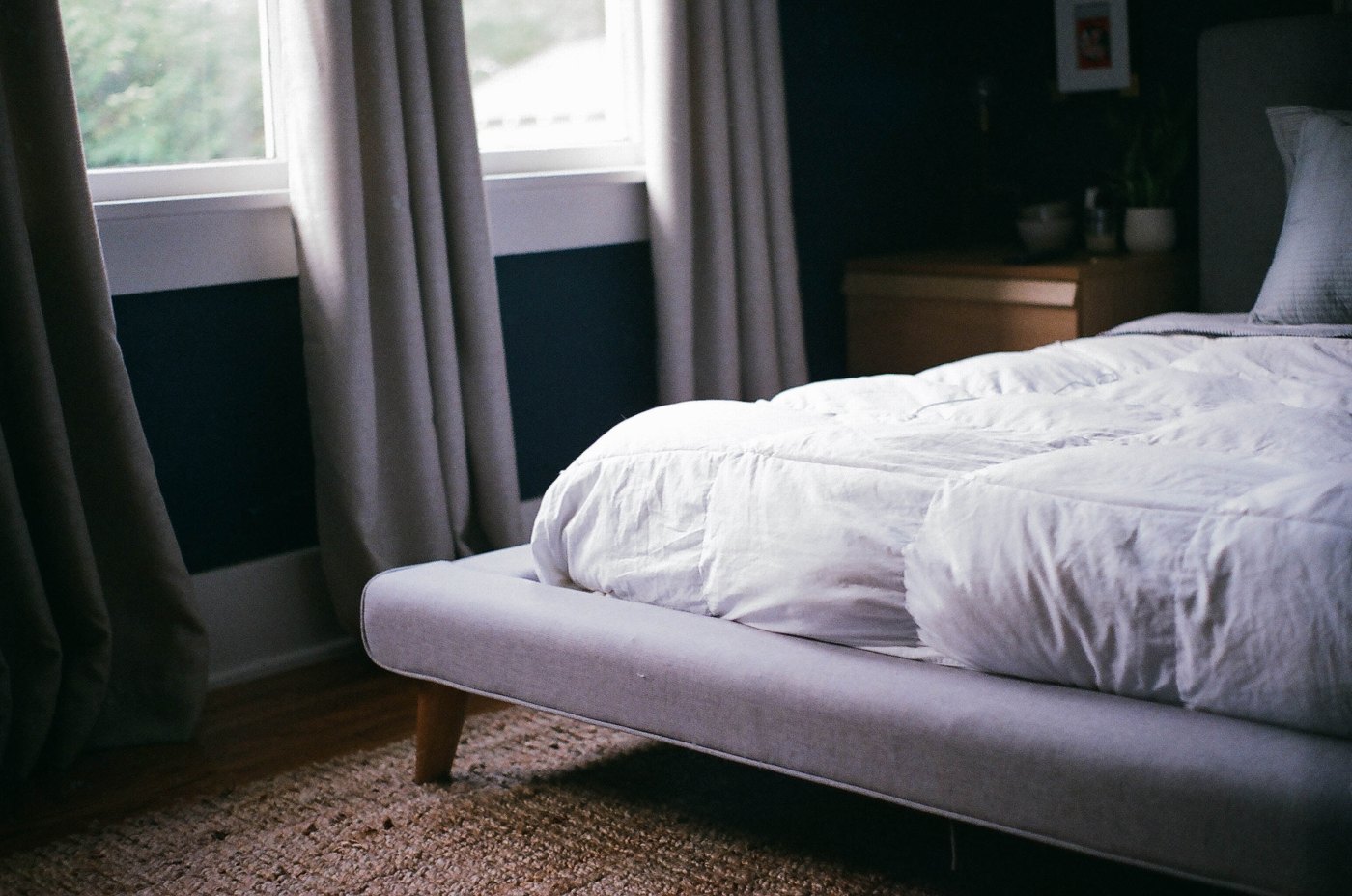
A good night’s sleep is the foundation of any healthy, happy lifestyle. One cannot be truly well without getting good sleep – and yet, how many of us really prioritise our sleep routine?
Our relationship with sleep can be tricky at best. There are so many people out there advocating late nights and early mornings in order to get ahead, and those of us who leave a night out early to get to bed are often ridiculed. Sleep is rarely valued as a health practice; we talk a lot about clean eating and exercise, but sleep is rarely mentioned. Good sleep can help us to keep stress at bay, to think more clearly, to handle unexpected problems more easily and even to keep our weight in check. In fact, disturbed sleep has also been linked to increased incidence of dementia.
So, what constitutes “good” sleep? Everyone has heard the stories of Margaret Thatcher sleeping for only four hours per night when she was Prime Minister, and many people have discussed the idea of “sleep hacking” as a valid alternative to getting a good night’s sleep. It’s true: there are some people who naturally only need a few hours’ sleep per night. That is a tiny, tiny percentage of the population though; for the vast majority of us, we need between six and eight hours of good quality sleep each night. That doesn’t mean we can sleep four hours per night through the week and then spend the weekend catching up; we need to be consistent with our sleep routine.
It also doesn’t mean we can feel good about our sleep routine if we just spend eight hours in bed each night. We need good quality sleep. Some of us might be fine with six hours’ good quality sleep; others might need eight. The point is that it needs to be good, restful sleep in order to be counted!
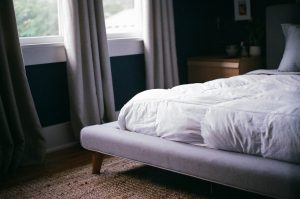
So here are Scentered’s top tips on getting a good night’s sleep:
Eat the right foods
It’s important to maintain a nutritious diet for good sleep. That can be hard when you’re constantly on the go, rushing between work and home – but you can make simple changes that will help. Try to avoid starchy carbs and overly processed foods as much as possible and include foods that contain tryptophan. Tryptophan is an essential amino acid that our bodies cannot produce; it’s present in protein, but we need carbs with it to help our bodies absorb it correctly.
Turkey is the most tryptophan-rich food, but it’s also available in seeds and nuts, soya, cheeses, beef and chicken (especially the dark meat), fish, beans, lentils, and eggs. Try to pair these with a good source of healthy carbs (for example sweet potato, vegetables or fruit) in your evening meal.

Caffeine curfew
If you’re struggling with sleep, caffeine is not your friend. Many of us feel that we depend on coffee to get us going in the morning, but caffeine has a half-life of five to six hours – so if you have a coffee at 5pm, your body has only eliminated half of that caffeine from your system by 10pm. It’s no wonder you still feel wired and awake when you’re trying to get to sleep! Most of us will be horrified by the idea of cutting out caffeine completely; if the thought of giving up your morning brew terrifies you and your mantra is “death before decaf,” consider putting a caffeine curfew in place. After midday, limit yourself only to water or non-caffeinated drinks. You should notice an improvement in your sleep quality almost immediately.
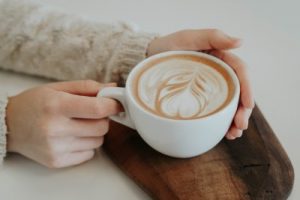
Get some exercise
The main reason people don’t exercise is that they don’t have time to go to the gym, get changed, do an hour on the treadmill, get a shower and get dressed again. But a lot of the reason we are not able to sleep at night is that while our brains are exhausted, our bodies have been sitting in a car/on a train/at a desk for twelve hours or more – they are not tired! The good news is that you can actually do a fairly effective workout in a short space of time; at home or if you do have time, then at the gym. HIIT sessions are a great way to increase your heart rate and get your body moving, they also require little to no equipment, making it the perfect at home session. You can do this any time of the day, in the morning before work, or when you arrive home in the evening. Yoga is also a great evening activity. Allowing you to get your body moving, whilst winding down and stretching before bed.
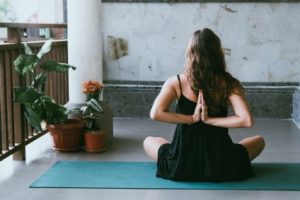
Supplement with magnesium
Magnesium seems to be the world’s best-kept secret when it comes to insomnia and sleep problems. It is actually a component of more than three hundred different enzymes in the human body and plays an important role in everything from hydration to energy production. Magnesium also plays a part in muscle relaxation, energy production and deactivation of adrenaline production. It’s crucial in the functioning of GABA receptors, which are present in the entire body and nervous system. GABA is a calming neurotransmitter, so if GABA receptors are not working properly, we will find it hard to calm down. Without correctly functioning GABA receptors, we remain alert and tense – even if we feel exhausted. Getting enough magnesium doesn’t automatically mean you’ll sleep like a baby, but if you are deficient in magnesium it almost guarantees you won’t sleep well. It is recommended to take a good quality supplement in a chelated form (either citrate, ascorbate, orotate or glycinate) before bed; around 400-600mg is ideal.
Aromatherapy
We all know that lavender is supposed to make us sleepy, but there are many other scents out there that will help you to feel more calm and serene, and therefore more likely to sleep off into a blissful sleep. Our Sleep Well Therapy Balm contains lavender, palmarosa and ylang ylang to help you relax and clear your head. Massage some into your temples and wrists as part of your evening routine. Or perhaps try our travel size Sleep candle – the perfect tool for helping you to unwind after a long day. Light before you go to bed and enjoy the natural fragrance allowing you to feel relaxed and calm whilst out of the comfort of your own home. Click here and use the code “maiden20” at checkout* for 20% off.
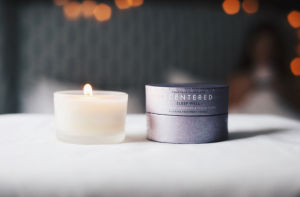
Darkness is your friend
A dark room can make a massive difference to the quality of your sleep. Blackout blinds are an obvious choice, but also look at what you have that lights up in your room: flashing alarm clocks; a mobile phone; a landing light left on for the children. All of these can have an adverse effect on the quality of your sleep. Get rid of as much light as possible from your bedroom, and definitely get rid of that TV; the blue light from the screen is the worst thing for anyone who’s trying to sleep. Also, consider getting a sleep mask to wear to bed. You might think it would feel restrictive to have your eyes completely covered, but it really can make a difference to good quality sleep for a longer period of time – especially in the summer, when the sun rises much earlier than most of us intend to wake up, or even whilst you’re travelling to block out what’s going on around you.
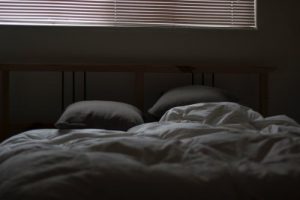
Avoid blue light
The light that comes from your TV, laptop, tablet or mobile is what we call “blue” light, and it actually stimulates the brain, waking us up. Working on your laptop or answering emails on your phone right up until lights-out might make you feel really productive, but it will also keep you awake and staring at the ceiling when you could be fast asleep. During the last hour before bed, switch off all screens and read a good book or magazine instead. If you must use a screen, invest in a pair of blue light blocking glasses, but don’t think that gives you free rein to carry on with the screen time. Taking the time to read a book and wind down helps the brain to relax and get out of “work” mode – only use the glasses when you’re up against a tight deadline and absolutely must use a screen.

Sleep is something many of us struggle with, and something very few of us get enough of. It can be hard to wind down after a hectic, stressful day but winding down and relaxing is the only way to ensure we can get to sleep and stay there. There are many ways to help yourself get a peaceful night’s sleep before reaching for the sleeping tablets; try a few of our suggestions and see how you fare.
Promotional code T&C’s: Enter code “maiden20” at checkout to receive 20% off. The code can only be used against full price purchases made on the http://www.scentered.me website and cannot be used in conjunction with any other offer. Valid until 31st March 2018.